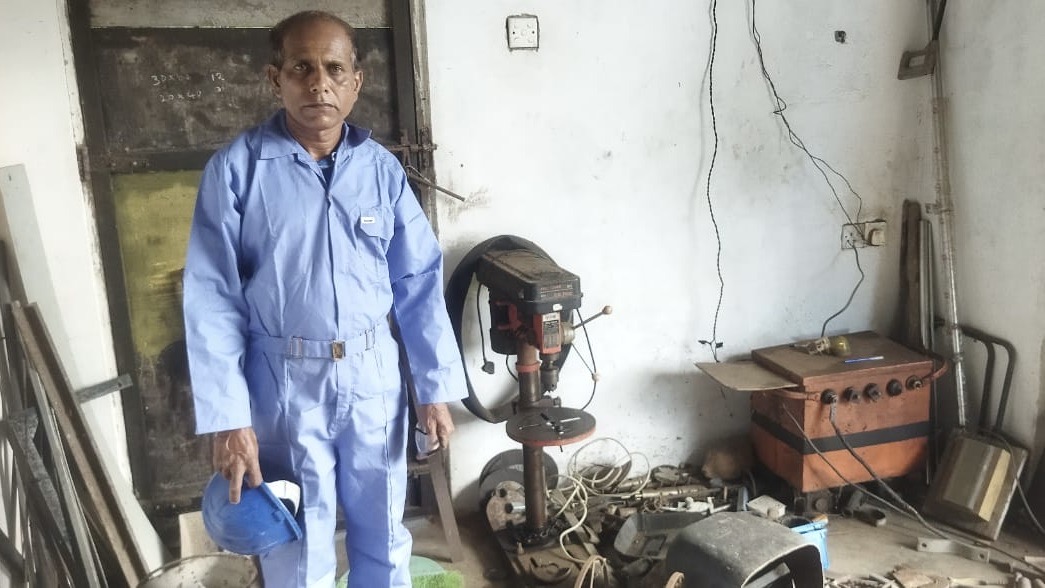

Working without Fear: Neil’s story
22 January 2025 UNIDO
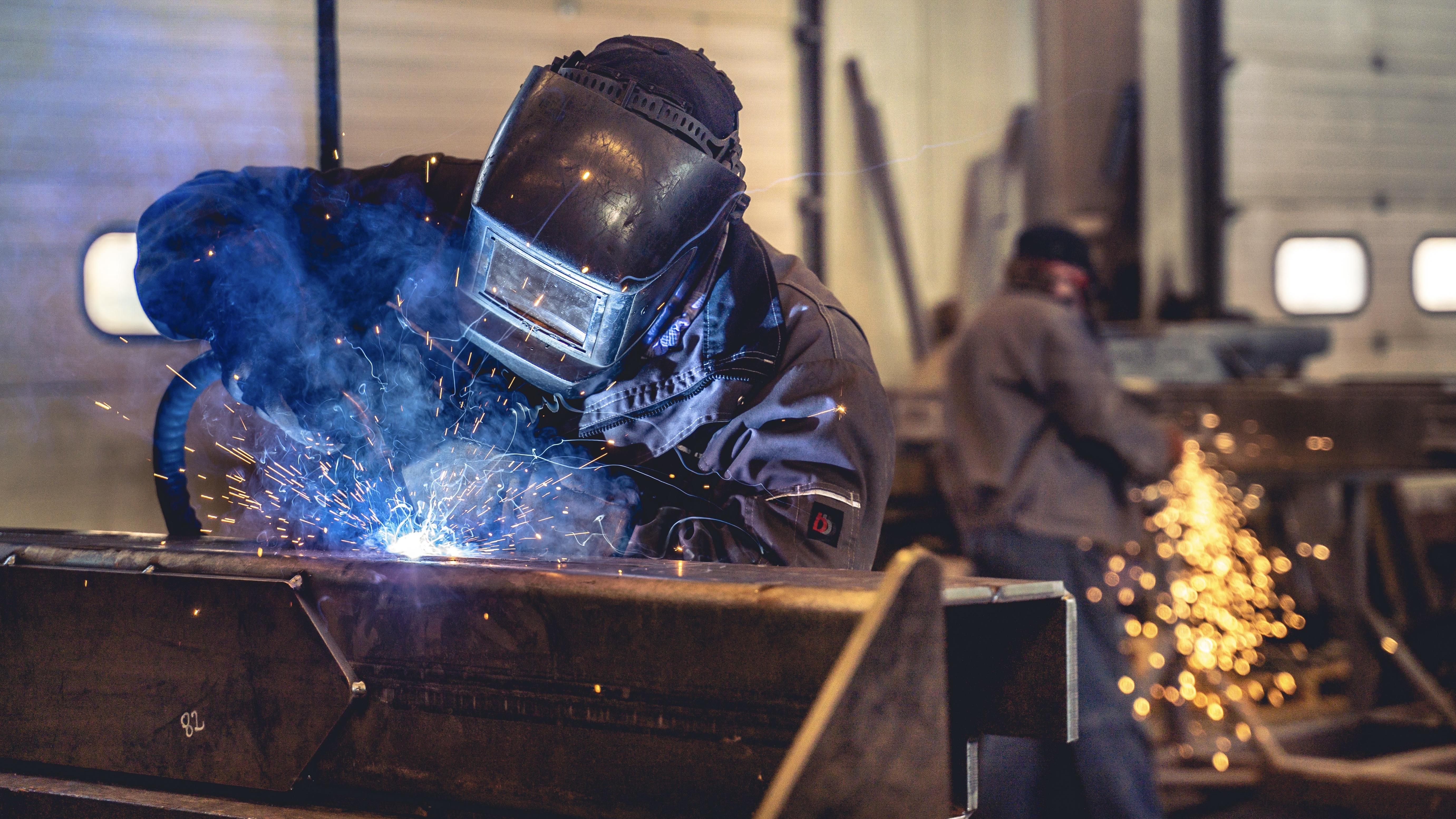
With over twenty years of welding experience both at home and abroad, Neil had a solid grounding in the trade. Nevertheless, he was unaware of the risks he was running daily by handling oils containing toxic chemicals, such as PCBs.
“When I first learned about this, I was scared,” he tells us. “Welding equipment gets hot during use, causing oil to leak, and I was afraid to continue working.”

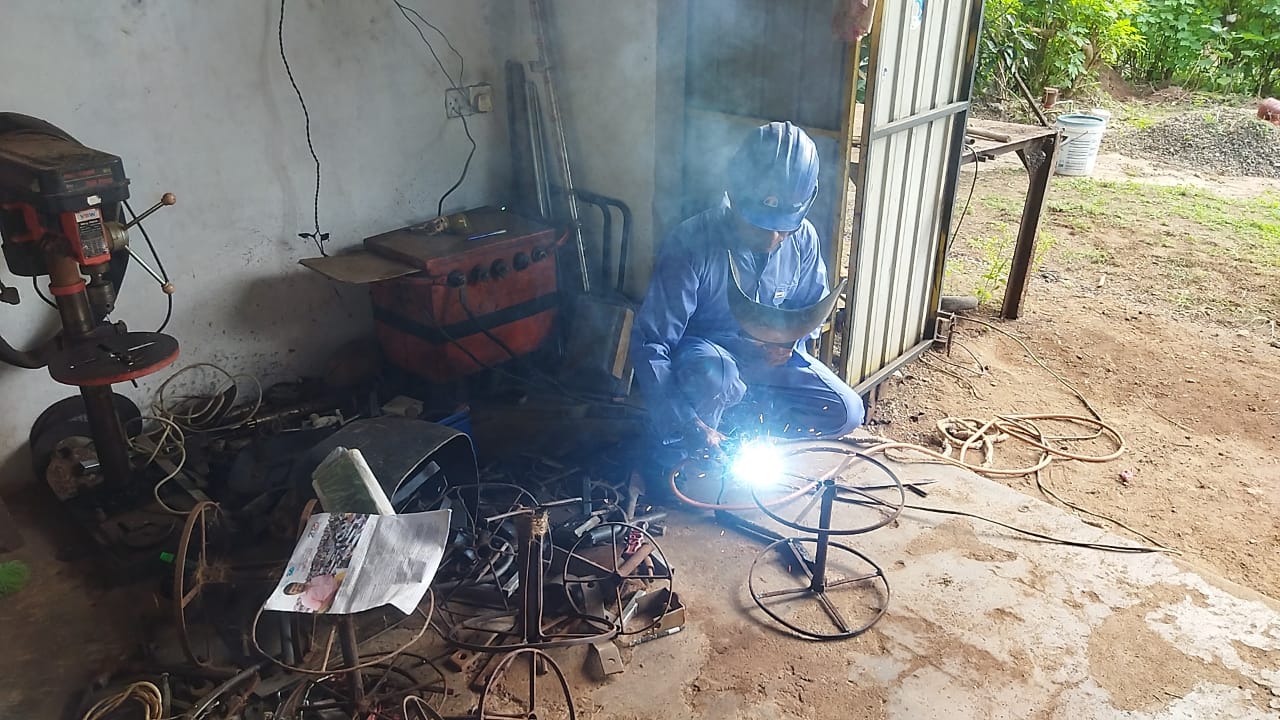
Indeed, polychlorinated biphenyls (PCBs) are harmful to the environment and human health and have been linked to cancer, skin and eye problems, and developmental disorders in children.
Although they are no longer allowed to be produced, PCBs can still be found across the world. In Sri Lanka, people like Neil who work closely with electrical transformers are most likely to be affected by this pollutant. According to previous studies, around 50 - 60 per cent of welding plants tested in selected areas were contaminated. Often, the cooling oil used in plants in small-scale welding industries contains PCBs and the risk of exposure spreads further to the public, including the families of welders and their customers.
The PCB contamination at Neil’s workplace was discovered during an inspection carried out under a UNIDO project funded by the Global Environment Facility (GEF). As well as introducing and implementing a management system to eliminate PCB releases in the country, the project also sought to raise awareness of the dangers of these manufactured chemicals, known as Persistent Organic Pollutants (POPs).
Neil is one of over 10,000 small-scale welders who participated in awareness-raising activities organized under the project and despite his initial concerns he affirms, “after learning more about it, my fears disappeared.”
Mobile units fitted with computers and large screens travelled the country to share information on how to tackle the dangers PCBs pose. The innovative awareness-raising campaign led by the project’s main partner, People to People Volunteers (PTPV) also included the distribution of brochures in Sinhala and Tamil, street theatre, and radio and press campaigns.
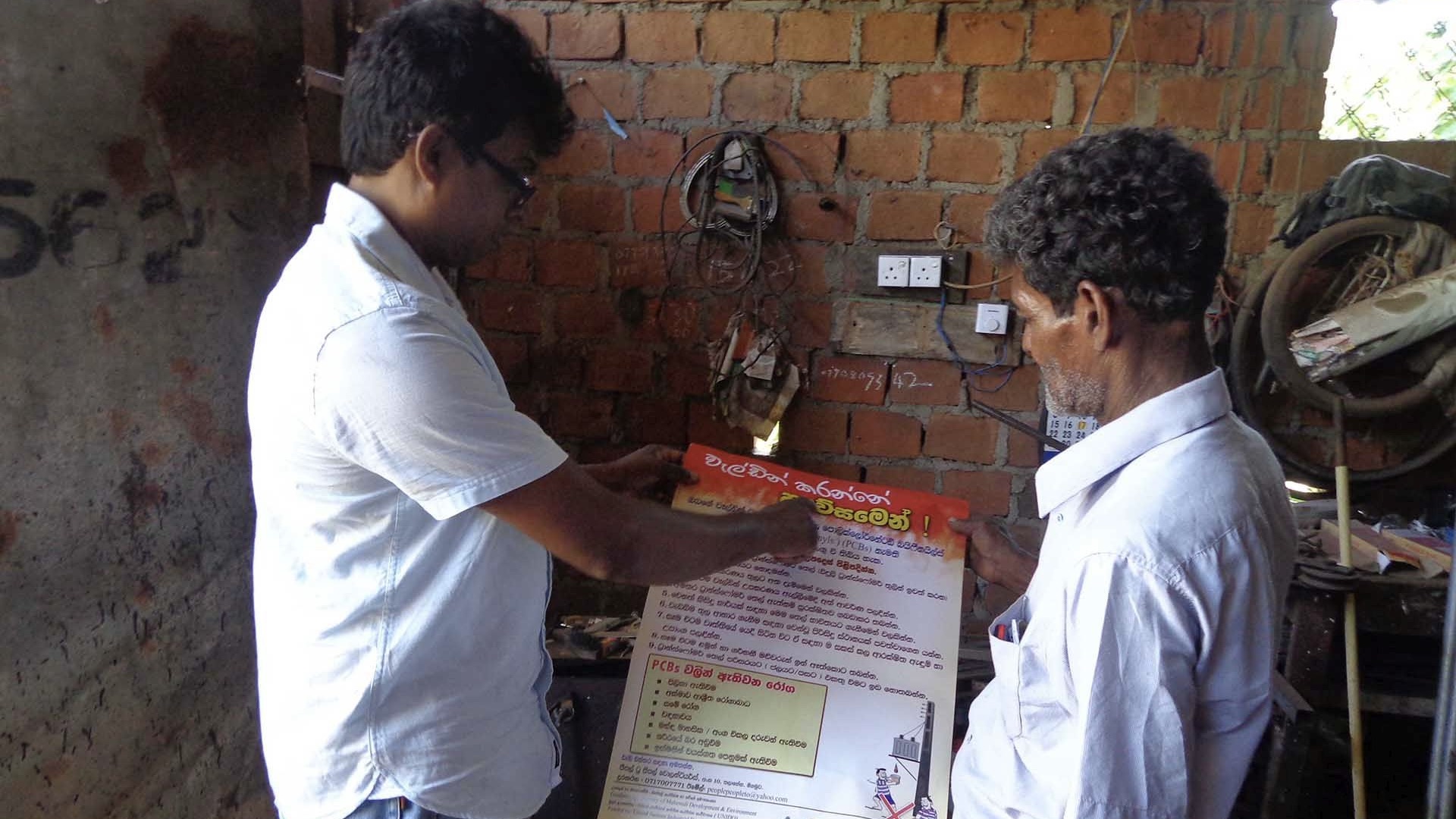
“Welding professionals were reluctant to attend awareness workshops outside their work area and it was a challenge to engage them in the workshops. The mobile unit was an important solution to this,” explains PTPV’s Anuradha Prabath.
Neil’s contaminated equipment was cleaned by one of the specialized safe mobile cleaning units developed by PTPV and he was provided with safe replacement oil. In many ways, the project has provided Neil and his family, alongside 18,500 others, with the foundation for a toxic-free future. Now aware of the potential risks, he can take practical steps to protect his family from exposure, including changing his work clothes before returning home. “Now I can work without fear,” Neil says.
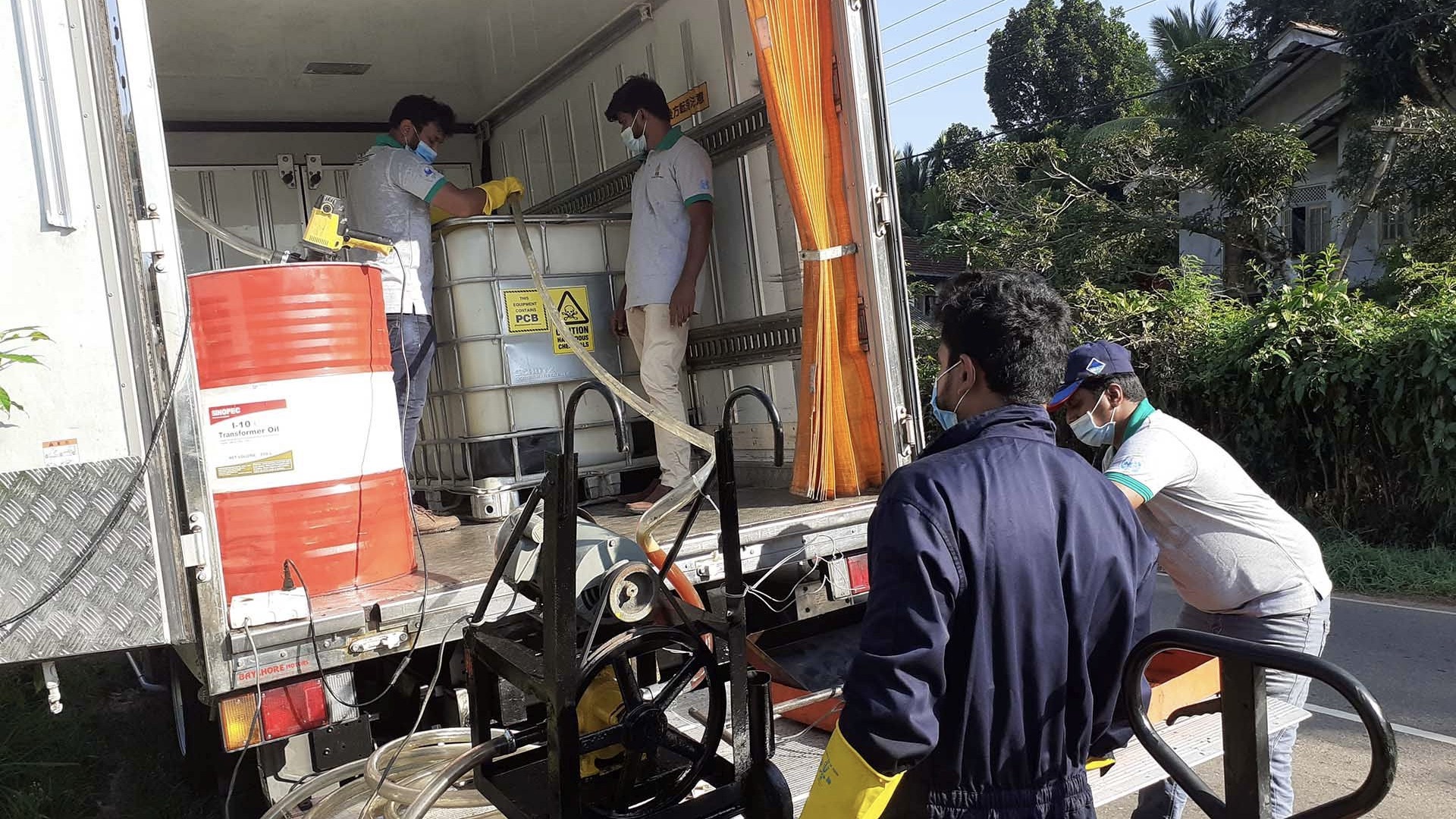
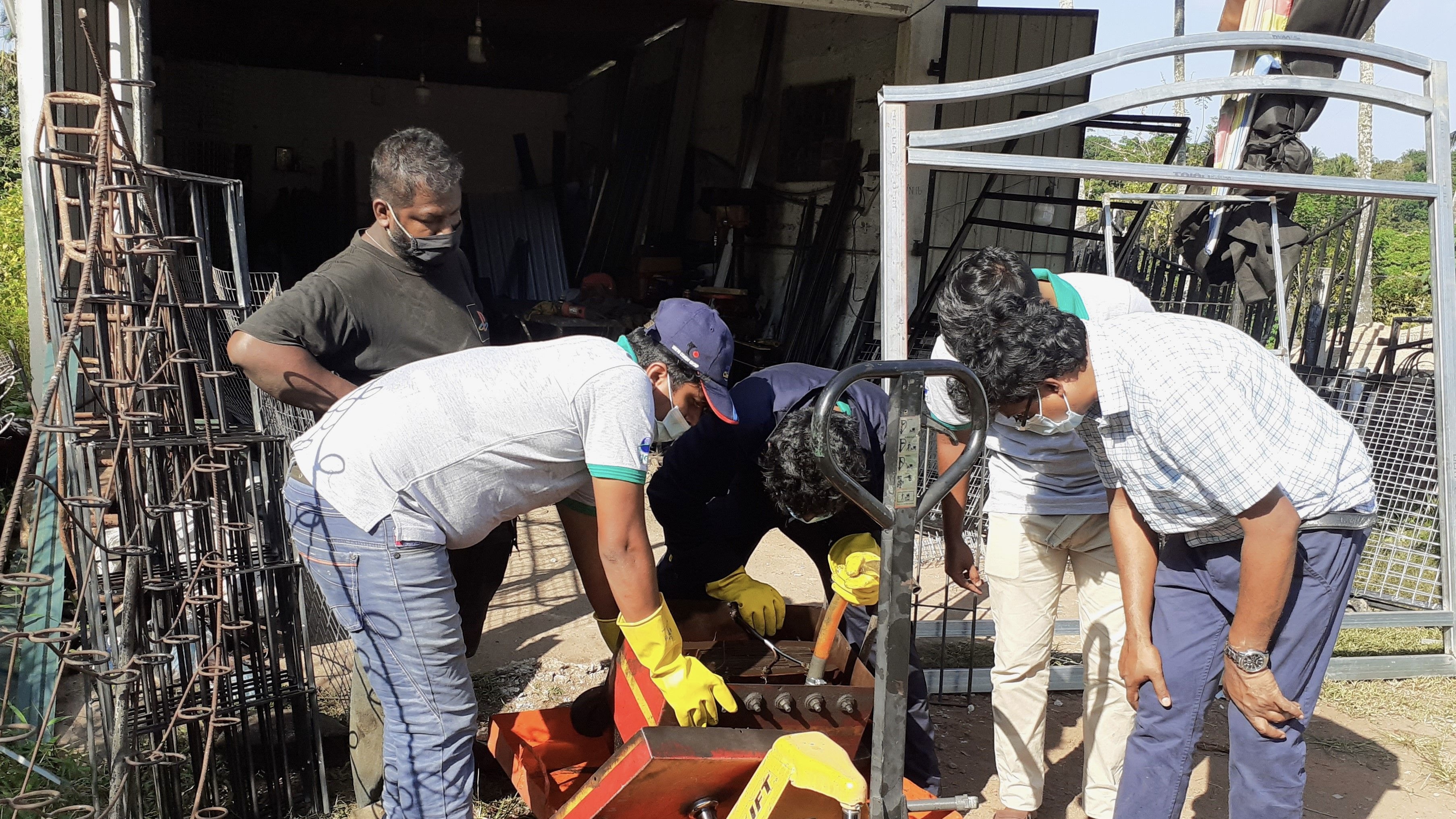
However, it is not only welders at risk. PCB-contaminated oils are used to treat a range of issues in Sri Lanka, including work-related injuries, scalp treatment, and as weedkiller. Previous studies carried out by PTPV have also found that they are used to treat pet injuries, such as burns and rashes.
“People in the areas the project targeted have been using PCB-contaminated oils for muscle pain and other ailments for many years,” points out Mahinda Werahera, who managed the project on behalf of the project’s executing partner, the Ministry of Environment. “Initially there were some doubts and it took a while to convince them of the health risks of working adjacent to their homes.”
However, thanks to the project’s community-based approach, it has been possible to prevent PCB exposure, while also giving welding professionals a much-needed economic boost in the aftermath of COVID-19. In coordination with several welders' associations, a mechanism has been developed for the purchase of new PCB-free transformer oil required by welders.
“This is a unique and innovative project for both the welding sector and PCB management,” affirms UNIDO project manager, Carmela Centeno, Head of the Responsible Materials and Chemicals Management Unit. “The project has directly protected over 25,000 people nationwide from health hazards associated with PCB exposure and there is significant scope for scaling up the innovations and PCB management systems established to cover other sectors and even other toxic chemicals.”
With a robust system now in place for monitoring, managing, and disposing of PCB-contaminated equipment, the project leaves a “multi-faceted legacy” according to Anuradha, which Mahinda describes as being of “huge value to the country.”
The project also secured a Hazardous Waste Management License for PPTV from the Central Environmental Authority that allows for the safe storage of chemical wastes including PCBs and in the case of oil spills in Sri Lanka. An intermediate facility was constructed for the storage of PCB-contaminated transformer oil in the Gampaha district and a complete inventory of the welding sector was prepared by PTPV in the initial phase of the project.
Further, laboratory facilities were established for PCB analysis using test kits, and a committee was established among key stakeholders for enhanced collaboration. This involves government bodies, private sector companies, and local communities, including INSEE, Lanka Electrical Company Limited (LECO), Ceylon Electricity Board (CEB) and Lanka Transformer limit (LTL). “This will be crucial for the continued success of PCB management,” affirms Anuradha.
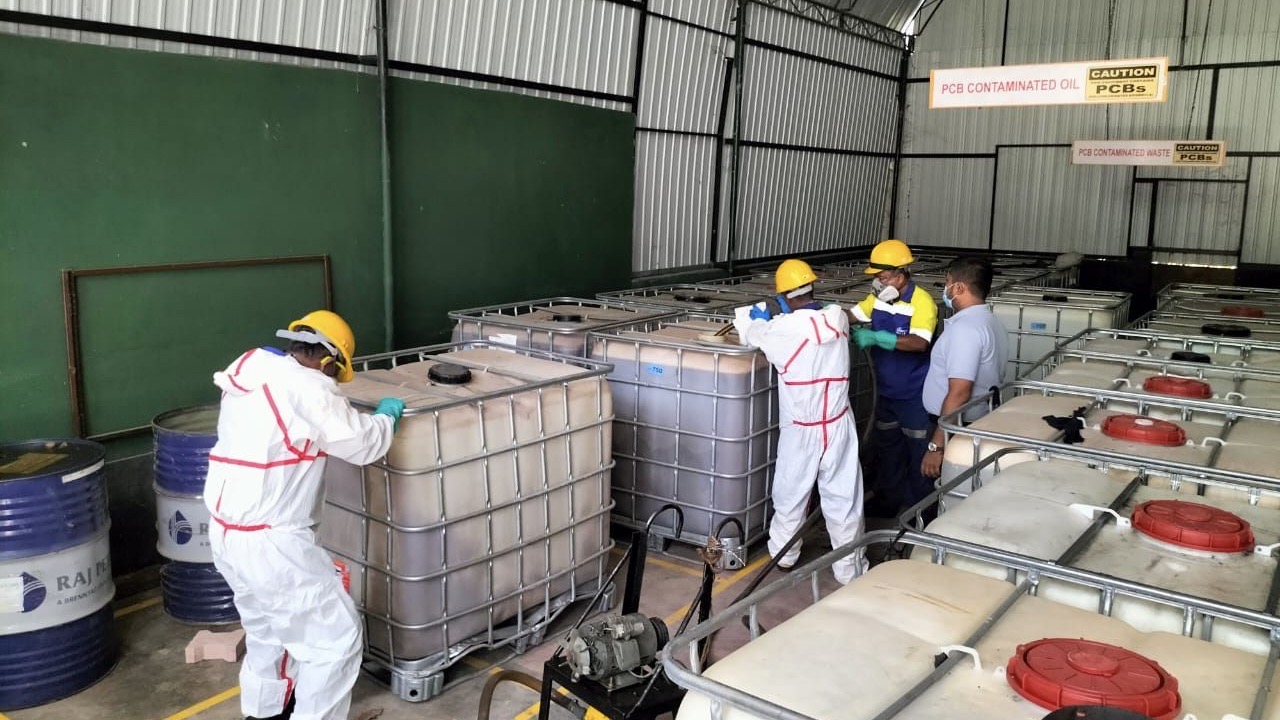
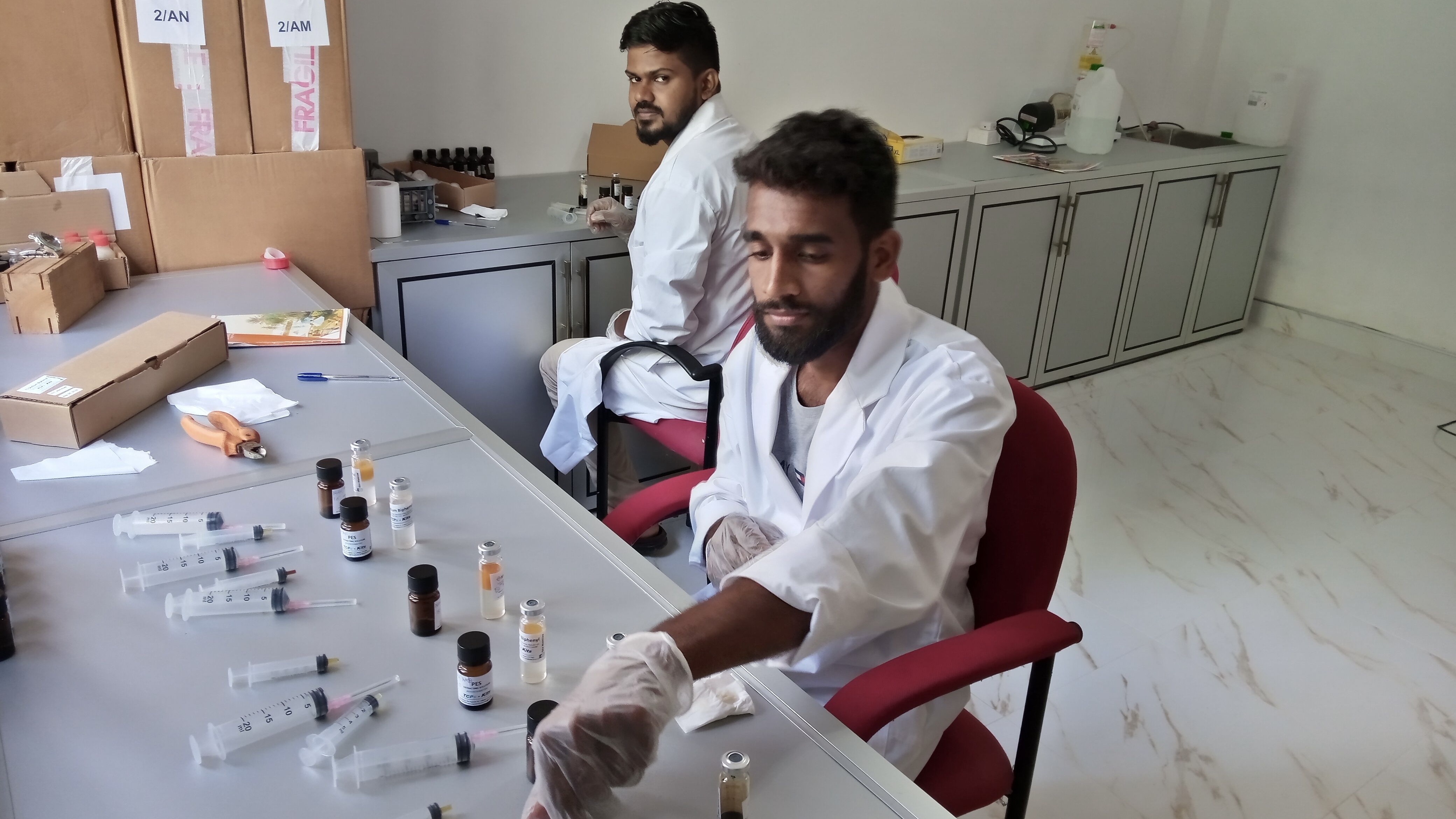
“I am grateful to all the individuals who started this program,” says Neil. “Before this, I was not aware of the risks, but now I feel safe in my work.”
For further information, please contact:
Head, Responsible Materials and Chemicals Management Unit